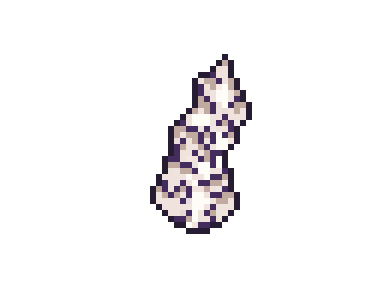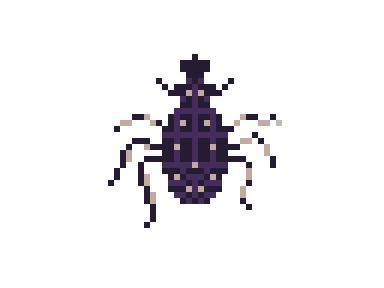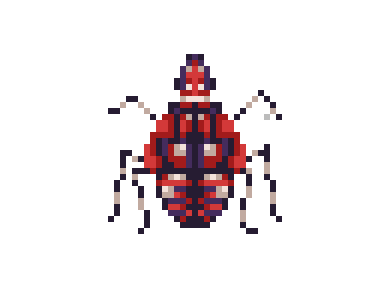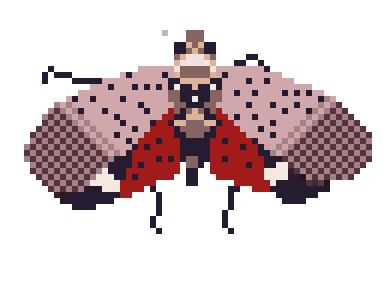The Spotted Lanternfly has an interesting life cycle you should be aware of if you intend to fight against them. We present the life cycle to you in pixel art form.
Eggs

Spotted Lanternflies will have laid eggs in the fall to last through the winter. Their egg cases, which are a waxy yellowish brown, are usually located on tree trunks, stone, or any vertical surface, including manmade items like vehicles, outdoor furniture, or lumber. Their preferred place is the tree of heaven (Ailanthus altissima), itself an invasive species in North America.
Early Nymph

By late April or early May, nymphs begin hatching from the egg sacs. In the early stages (1st, 2nd, and 3rd instar), the Spotted Lanternfly nymph is wingless, and black with white spots.
Late Nymph

By July and August, we begin the see the late stage Spotted Lanternfly nymph (4th instar), which has some red patches mixed in with the black and white spots. They have a red upper body and red wing pads. They are still flightless, so they must crawl and hop from plant to plant to feed.
Adult

About September we begin to see the familiar adult Spotted Lanternfly at their peak. They have a black head, and gray wings with black spots. They begin to mate starting late September through the onset of winter. The adults lay their eggs on vertical surfaces, each egg case containing 30 to 50 eggs, and the cycle repeats.


One reply on “Spotted Lanternfly life cycle explained in pixel art”
Looking for the gestation of the bedbug.